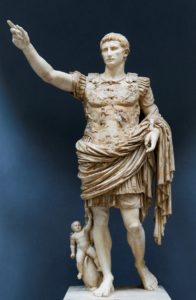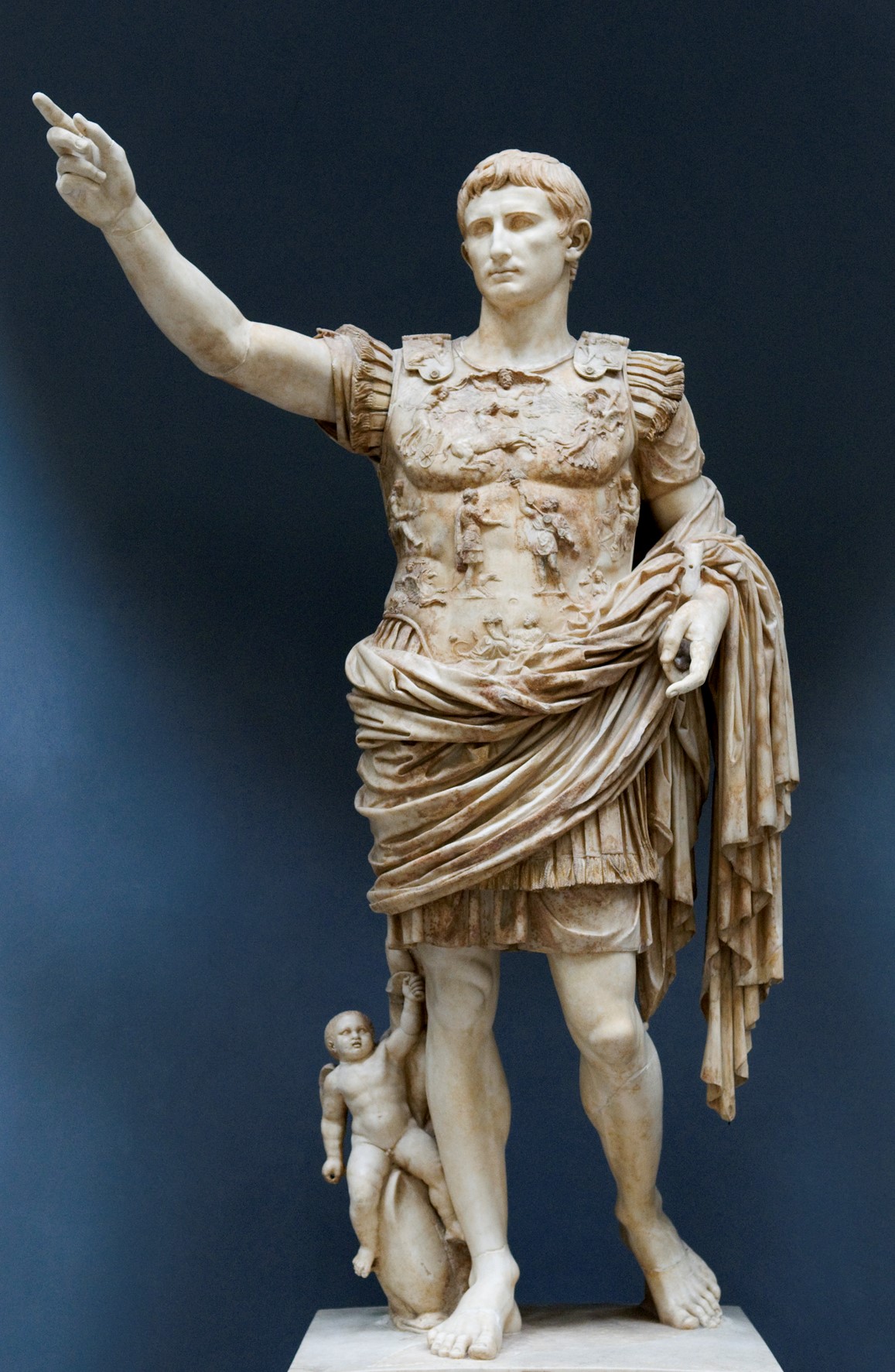Luke’s Gospel is a political challenge to the Roman Empire:
The angel declares to the shepherds that “a savior” is born (Lk 2:11) in the city of David, but the unspoken fact is that a “saviour” is already enthroned in Rome-Caesar Augustus, whose monuments declare him “saviour of the world.” Against this backdrop the anticipation of a savior within Israel seems fraught with danger, as the pious figures we meet in Luke’s Gospel invoke OT promises of deliverance. Zechariah speaks of a “mighty saviour” and of being “saved from our enemies” (Lk 1:69, 71 NRSV). Simeon, who has been looking for the “consolation of Israel,” thanks God that he has lived to see God’s “salvation” (Lk 2:30) in the face of the infant Jesus. And the aged Anna rejoices over the child in the presence of all who are “looking for the redemption of Jerusalem” (Lk 2:38 NRSV). John the Baptist also speaks of a great judgment and renewal within Israel associated with the coming of the Lord. Luke summarizes John’s activity with the biblical image of preparing a highway for the divine warrior so that “all flesh shall see the salvation of God” (Lk 3:6 NRSV; cf. Is 40:5 LXX).
unspoken fact is that a “saviour” is already enthroned in Rome-Caesar Augustus, whose monuments declare him “saviour of the world.” Against this backdrop the anticipation of a savior within Israel seems fraught with danger, as the pious figures we meet in Luke’s Gospel invoke OT promises of deliverance. Zechariah speaks of a “mighty saviour” and of being “saved from our enemies” (Lk 1:69, 71 NRSV). Simeon, who has been looking for the “consolation of Israel,” thanks God that he has lived to see God’s “salvation” (Lk 2:30) in the face of the infant Jesus. And the aged Anna rejoices over the child in the presence of all who are “looking for the redemption of Jerusalem” (Lk 2:38 NRSV). John the Baptist also speaks of a great judgment and renewal within Israel associated with the coming of the Lord. Luke summarizes John’s activity with the biblical image of preparing a highway for the divine warrior so that “all flesh shall see the salvation of God” (Lk 3:6 NRSV; cf. Is 40:5 LXX).
Leland Ryken et al., Dictionary of Biblical Imagery (Downers Grove, IL: InterVarsity Press, 2000), 441.

